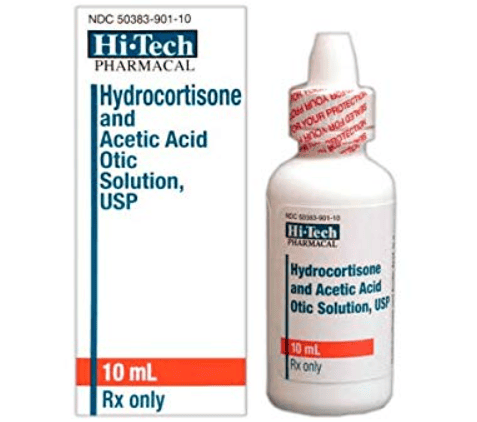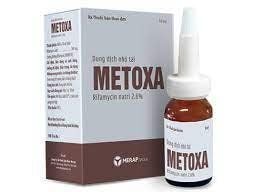This is an automatically translated article.
Sore throat is a very common disease in both children and adults. The treatment of sore throat is also a matter of concern for many people. Pharyngitis in adults and children if not treated in a timely manner can lead to dangerous complications.1. Overview of pharyngitis
Pharyngitis is a common infection that causes pain in the throat. Patients may feel discomfort when their throat is sore, difficult to swallow. In some cases, sore throat is accompanied by an infection, cold or flu.Pharyngitis occurs in all ages, genders, many records show that the likelihood of pharyngitis in children and pharyngitis in adults is similar.
2. Causes of sore throat
One of the most common causes of a sore throat is a cold or flu virus. Diseases such as measles, chickenpox, and laryngeal diphtheria can also cause pharyngitis. In fact, the most common cause of sore throat is a viral infection.In addition, tobacco smoke, pet hair such as dogs and cats, pollen from chrysanthemums or polluted air can also lead to sore throats in children and cause cold symptoms such as allergic rhinitis or hay fever.

Khói thuốc lá cũng có thể là nguyên nhân dẫn tới đau họng ở trẻ em
3. Symptoms of sore throat
When you feel a sore throat, it is most likely the first sign of a cold. It could be the result of a strain on the vocal cords or a more serious problem like a sore throat.Symptoms that can accompany sore throat are:
Moderate fever or high fever from 39oC-40oC. Sore throat, difficulty swallowing, difficulty talking. Blisters around the mouth, lips or mouth of the nose, gingival sulcus, pharyngeal mucosa.. One or more lymph nodes in the corner of the jaw, under the chin, on both sides of the neck, the lymph nodes are enlarged, painful to palpation, and have little mobility. Feeling headache, body aches, fatigue. Poor eating due to sore throat, loss of appetite.
4. Complications of sore throat
Pharyngitis in adults and children if not treated in a timely manner can lead to ear infections (otitis), sinus infections (sinusitis), pneumonia, meningitis, and rheumatic fever. Among these complications, glomerulonephritis and rheumatic fever are the most worrisome:Rheumatic fever : Rheumatic fever is considered a serious complication of pharyngitis. Left untreated or improperly treated, the bacteria remaining in the tonsils can trigger persistent immune responses, leading to inflammation in other parts of the body including the brain, heart, joints and skin. This condition is called rheumatic fever and usually occurs two to four weeks after a sore throat. The most serious consequence of rheumatic disease is the effect on the heart which can cause scarring of the heart valves. Kidney disease: Certain immune system reactions in people with sore throats can also cause nephritis (glomerulonephritis after a strep attack). This complication is more common but less dangerous than rheumatic fever. Nephritis: Can occur 1-3 weeks after pharyngitis and tends to clear up on its own within a few days without causing any damage. Children are at higher risk of developing nephritis after a sore throat. Symptoms may include blood in the urine, swollen ankles, and puffy eyes.
5. Methods to treat sore throat

Một trong những cách điều trị viêm họng hiệu quả nhất là dùng thuốc kháng viêm không steroid
5.1. Using anti-inflammatory drugs One of the most effective treatments for sore throats is taking nonsteroidal anti-inflammatory drugs (NSAIDs) like Advil or Aleve, which have analgesic and anti-inflammatory effects, reduce fever, and make you feel more comfortable. and gradually reduce the symptoms of swelling when pain.
5.2. Using antibiotics About 10% of sore throats in adults are caused by an infection with bacteria such as Streptococcus pyogenes. Some antibiotics that may be prescribed by a doctor include:
Penicillin V: Oral antibiotic, usually prescribed for most sore throats. Amoxicillin: A very useful oral substitute for penicillin, it can be taken with food. Penicillin G benzathin A: A single-dose intramuscular antibiotic that can be used in patients who are unable to take oral penicillin or are unable to complete a 10-day oral course. Erythromycin ethyl succinate (eg E-Mycin): An oral antibiotic suitable for people who are allergic to penicillin. 5.3. Gargling with salt water Some studies show that gargling with warm salt water several times a day reduces throat swelling, stimulates more mucus production, and helps flush out irritants or bacteria.
5.4. Sore throat lozenges and cough syrups Coughing on cough drops tends to stimulate the secretion of saliva, which helps keep the throat moist. To increase positive side effects, choose lozenges with cooling or numbing ingredients like menthol. In addition, cough syrup also helps relieve sore throat pain.
5.5 Drinking Water It is very important to maintain the necessary amount of water in the body, especially when your body is unwell, your throat is irritated or inflamed. You should drink enough water so that this amount of water helps keep the mucous membranes moist, strengthens the resistance to bacteria and irritants, and helps the body fight other cold symptoms.
5.6 Rest Resting may not be the fastest solution, but it is probably the best thing you can do to fight the infection causing your sore throat. Make sure your body gets enough rest, it will help your body fight the virus so you can recover soon.

Bạn nên uống đủ nước để lượng nước này giúp giữ ẩm cho các màng nhầy, tăng cường khả năng chống vi khuẩn và các chất kích thích
6. Prevention of sore throat
An important part of preventing a sore throat infection is preventing it from spreading to others. Here are some simple steps to help prevent the spread of sore throat in children and adults:Cover your mouth and nose with a tissue when you sneeze or cough to prevent the spread of viruses and bacteria. other Wash and dry your hands often to remove bacteria from your hands Limit close physical contact with people who are sick Avoid sharing food, liquids, or eating or drinking with an infected person If you are infected sore throat stay at home within 24 hours of starting antibiotic treatment For children, avoid catching a cold; Breastfeeding should be encouraged, fully vaccinated to increase the body's resistance, Vinmec International General Hospital is one of the hospitals that not only ensures professional quality with a team of first-class doctors and nurses. industry, a system of modern equipment and technology, but also outstanding with comprehensive and professional medical examination, consulting and treatment services; civilized, polite, safe and sterile medical examination and treatment space.
Please dial HOTLINE for more information or register for an appointment HERE. Download MyVinmec app to make appointments faster and to manage your bookings easily.













